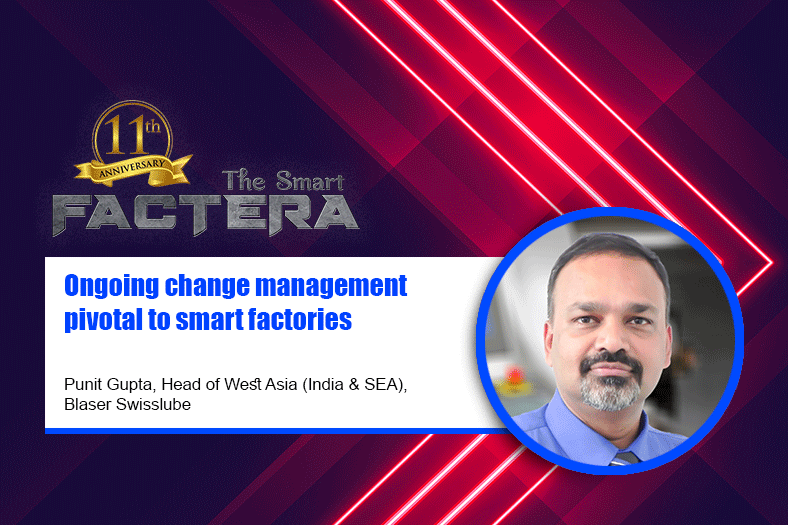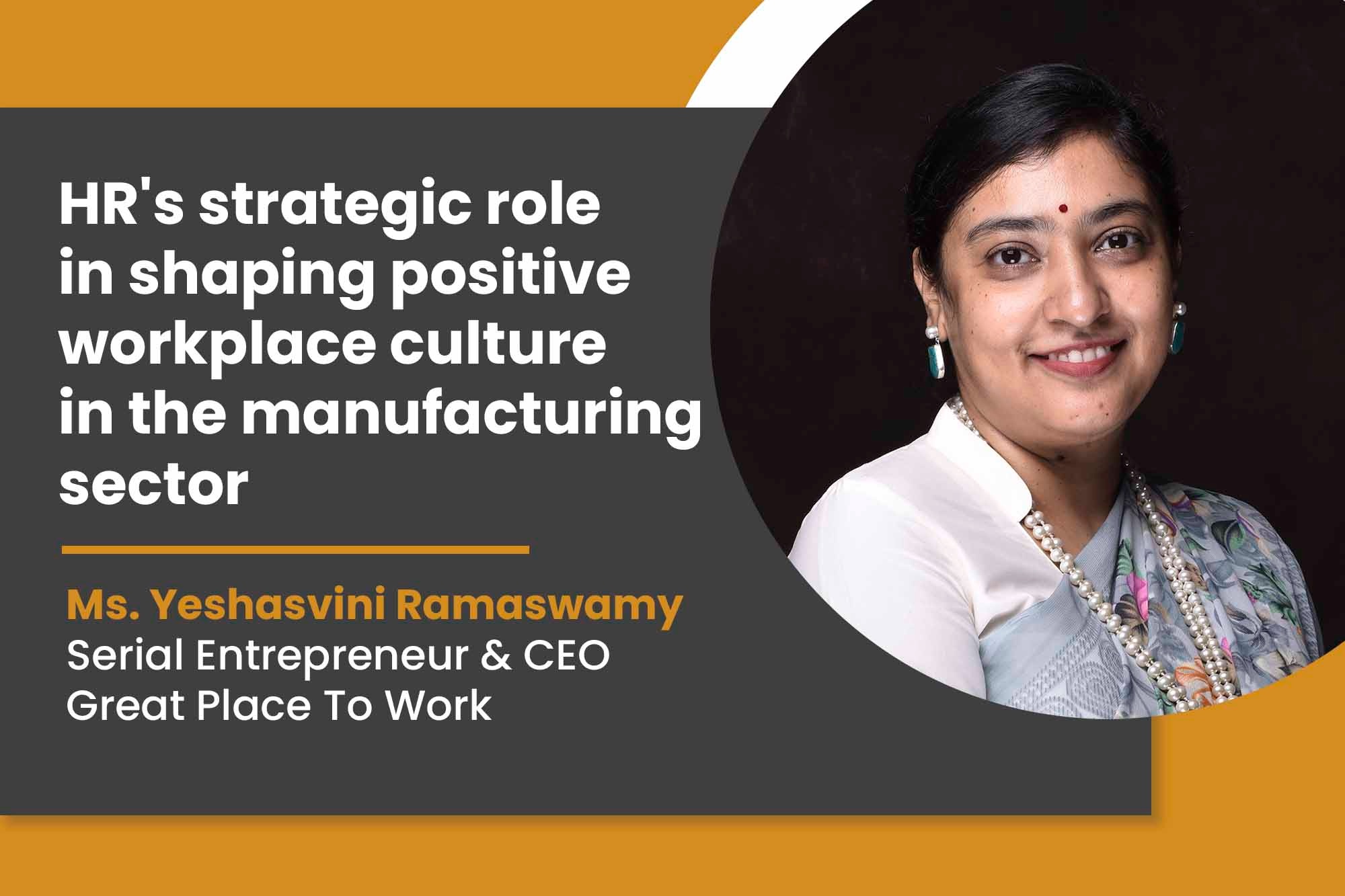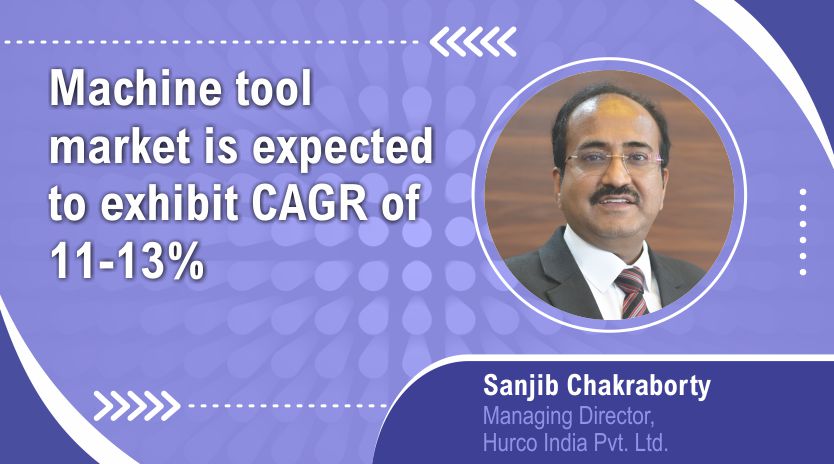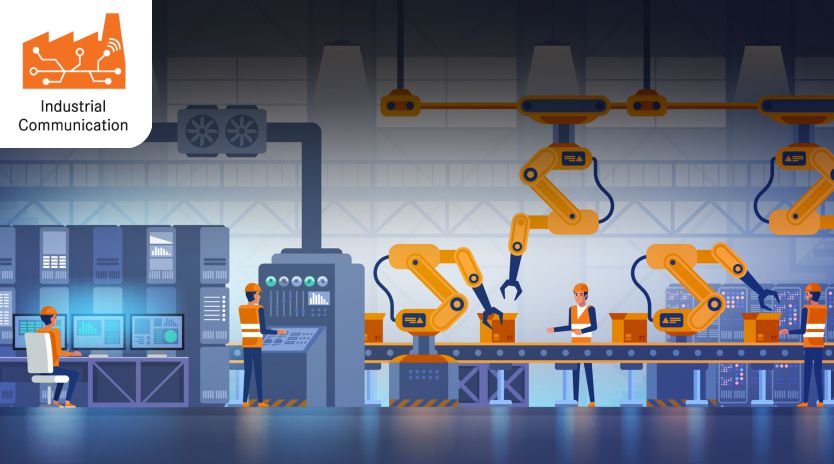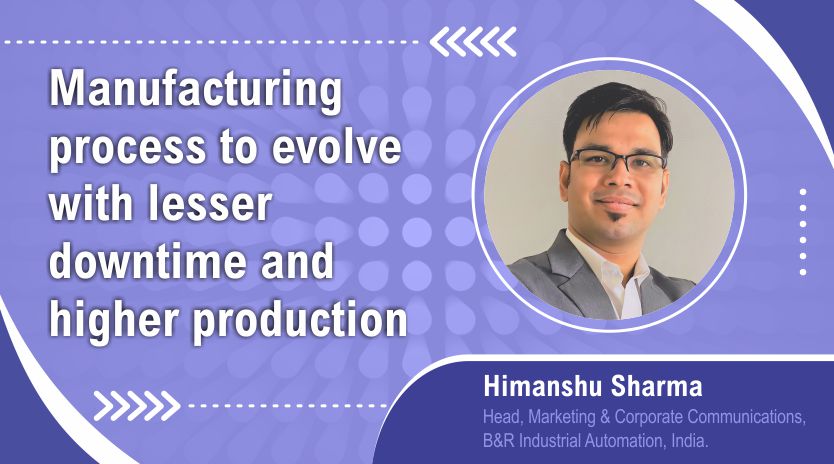Ongoing change management pivotal to smart factories
By OEM Update Editorial June 10, 2020 4:43 pm IST
A smart factory needs a future-oriented approach wherein you create a highly digitised and connected manufacturing facility that relies on smart manufacturing.
Punit Gupta, Head of West Asia (India & SEA), Blaser Swisslube, in an interaction with OEM Update, discusses the four steps that organisations must undertake in the journey towards smart factories, and the tools that the company provides to propel this journey.
What kind of steps do companies including MSMEs, need to take for the adoption of smart factories?
Being focused and true to your objectives is the primary key. A lot is being talked about smart factories and smart manufacturing over the last few years. The key question is: what does it mean for a specific company? Looking at the situation all over the world, every company has to drive for higher competitiveness. Enhancing productivity and quality is the route to achieve competitiveness. It is a journey which the whole company has to undertake. I would like to give few important aspects in this journey which are necessary and will make a foundation:
- Set the goals for higher productivity and better quality.
- Prepare the team and bring alignment within whole company.
- Invest in capable partners and right technologies.\
- Aim to build higher reliability in the processes.
This journey is long and involves change management. Changes in India take a lot more time and is at times painful.
Automation in simple processes including the working life and administration is the key starting point. It has a lot of potential for most of the companies, especially MSMEs, before companies start diving deep into complex automations in the manufacturing plants.
Smart manufacturing calls for a paradigm shift in decision making processes which will be more and more based on data and facts. Companies have to find ways to collect many data points in their manufacturing processes. The beauty of this change will be the high transparency within the organisation.
How has your company’s journey been in contribution to smart factories?We help our customers a lot in their journey to be smarter, competitive and more productive. Metalworking fluids (coolants) have a lot of potential to contribute in this journey. At Blaser Swisslube, we have been investing over the years to keep the technology at a high level successfully. The cutting-edge technology, rich expertise and experience coupled with customised services create the magical combination of this value proposition that is called as Liquid Tool. We help customers to generate relevant data points in their machining processes. We use technology to bring transparency and simulations in the productivity enhancement programmes together with our customers. All the customers who can work openly with us and have a clear approach can gain immensely from the Liquid Tool.
Machines must be exploited well to deliver the maximum possible output at high quality levels with high reliability. Liquid Tool has enormous potential to help customers win in this journey.
I am happy that we can help our customers in driving their competitiveness in a positive path which is a key expectation from a smart factory.
What are the challenges faced by companies while transitioning towards smart factories?
The beginning of challenges starts with a primary question: why does a company want to transition towards smart factory? A long-term approach is required in this journey. Companies have to be patient and ready to work step by step towards it. Few major challenges in starting this journey are:
- Alignment within the company
- Attitude of people towards productivity and quality
- Unlearning and relearning to upgrade knowledge and skills
- Building the ecosystem of partners who bring higher capabilities
- Dilemma between investment vs expenditure
These are doable and every company can find a way ahead once they decide their clear approach. Fundamentals will improve and gain a lot of significance in the time to come.
A smart factory needs a future-oriented approach wherein you create a highly digitised and connected manufacturing facility that relies on smart manufacturing. It is still in its infancy.
Cookie Consent
We use cookies to personalize your experience. By continuing to visit this website you agree to our Terms & Conditions, Privacy Policy and Cookie Policy.



